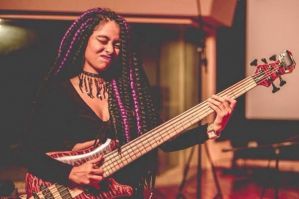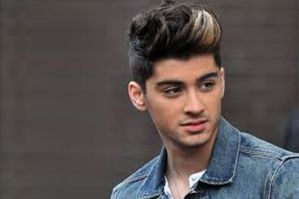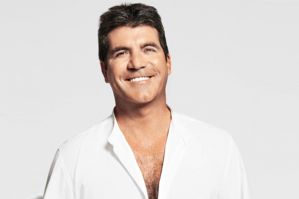Jazz Music needs more exposure in India û Pawan Benjamin

MUMBAI: Last week, the True School of Music organised a jazz master class led by faculty member and Manhattan School of Music alum- Pawan Benjamin. The master class explored the music of legendary American saxophonist and composer John Coltrane. Benjamin along with his band explored Coltrane’s musical journey and deconstructed his musical genius by a faculty performance of some of the legendary musician’s important works like the award winning ‘Blue Train’ and ‘My Favourite Things’.
From his very first exposure to the saxophone when Coltrane enrolled himself in the navy to the excruciating aftermath of The Civil War; the master class delved into the inspirations and experiences that influenced Coltrane’s music through the years.
Benjamin sat with Radioandmusic.com’s Aashay Dalvi to tell more about how Coltrane’s music inspired him and how he sees the music scene in India in dire need of being exposed to jazz.
Excerpts:
How has John Coltrane’s music inspired you and your approach to music?
He is probably the main reason I was drawn to the saxophone. I remember when I was 10 or 11 years, my dad would drive me from Wisconsin to North Carolina to see my grandfather. I remember, on one drive, the only album we had was John Coltrane’s ‘My Favourite Things’. So, for the 20 hours down there and the 20 hours back, we played that one album over and over. So, I heard his music at a very early and developing age.
Doing this [master class] was a pleasure for me because this is the music that actually gives me goosebumps and now to be able to play it, not to say that I am actually playing it well, to be able to hit those spots musically is really challenging, but also very rewarding. So, Coltrane is probably one of my biggest inspirations artistically.
Right from the 60’s, Coltrane defined Modern Jazz. And through Coltrane, I fell down the rabbit hole and discovered many amazing jazz artistes. Coltrane’s playing is so passionate and profound that it draws people in who normally do not associate with jazz because of the intensity with which it is played; it turns light bulbs on in people’s heads.
What is the reason behind conducting these jazz master classes?
The faculty members and I feel that people, especially those of this generation, should know about it, because they have no idea about jazz. There is so much commercial music out there, and that is not bad, commercial music is fine, but people have not been exposed to this kind of music. I feel that more people should be made aware of Coltrane’s kind of music, particularly developing musicians. They can truly be inspired by the music of John Coltrane. His music inculcates a feeling of peace and unity. If people connect with what he connected with, it would be a profound thing in India and the music scene across the world, I think.
How have students responded to the 60’s jazz?
They do not know what hit them, I think, but I know they are intrigued. Jazz is an American art form and not everyone is trying to learn it. But, just spreading the kind of discipline and methodical approach it takes to learn the instrument is important. It does not matter what you learn and what you do, you just have to want to do it right. I hope they take away a sense of discipline and creative inspiration.
Do you plan to continue teaching?
Yes, of course. While Coltrane was playing, another one of the saxophonists he often played with was Cannonball Adderley. Adderley spent most of his musical career teaching other bands and performers in Florida before he went off and starting performing on his own
Since you are a faculty member at TSM, have you found time to work on any original composition?
Yes, although that has kind of taken a backseat with teaching, which is fine since teaching gives you a new perspective on how you play. And, there are always those times when you take time off from the things that you do to go back to playing, and that too gives a fresh perspective on your playing. When you expose a different kind of music to your students and you watch light bulbs going off in their head, it is really an awesome experience. In time, I will write some music.
Besides John Coltrane, which are the other artistes or forms of music that have influenced you?
Well, besides Coltrane, right now, I am very inspired by Indian classical music. I play the bansuri and have been playing it for about five years now. So, I am very influenced by the tonality and acoustic sense of Indian classical music. Growing up, I had a lot of hip-hop and R&B influences; especially the early 90s hip-hop, like ‘A Tribe Called Conquest’, ‘Erykah Badu’ and ‘Jill Scott’. I like musicians who pour their heart and soul into their playing.
Which other genre of music do you think would be interesting when played together with jazz?
An interesting question! I feel that the music of jazz has been really well played together with European classical music. But, I aspire to write something that would bring jazz together with other types of music. The thought of writing something that would bring jazz back to its popular days is exciting.





















